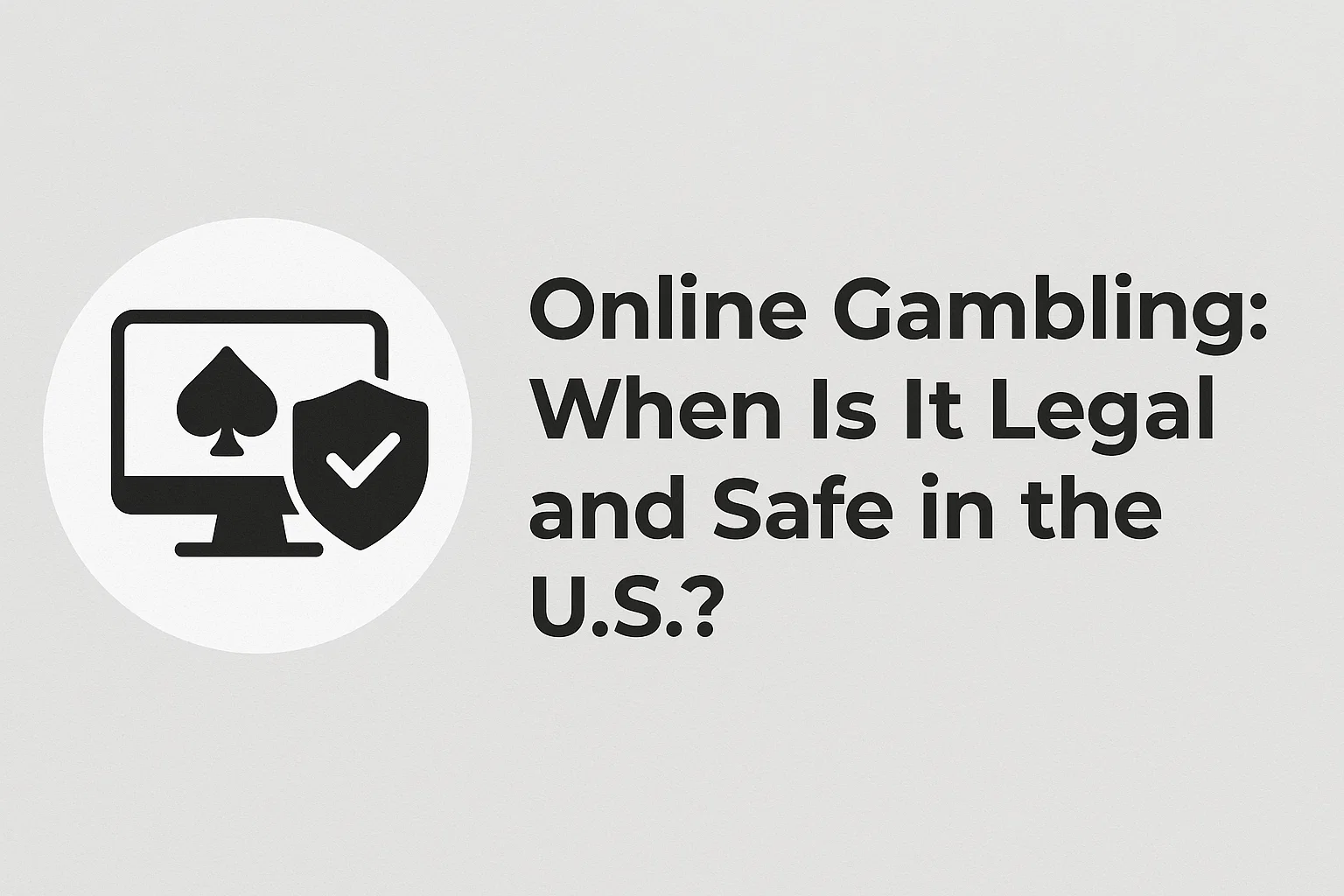


Gambling on the Internet is becoming ever more popular in the United States, and we must say it is far safer than most of the alternatives built by human hands or the natural world. Why? Because online, you can all but eliminate the most dangerous variable in the equation – the people with whom you are gambling.
To legally gamble in online casinos in the U.S., it's vital to select sites that have been licensed and regulated by real state gaming commissions, like the New Jersey Division of Gaming Enforcement (DGE). These state agencies oversee online gambling in their jurisdictions and are responsible for ensuring that the platforms they regulate are safe and offer fair games with secure payouts.
U.S. online casinos that are licensed and regulated make it very clear by showing their regulatory authority's seal or logo right on the home page of their site. You can also find a current license number displayed there, too. Most of these sites operate under a domain that is based in the United States (like .com or a specific state-domain), but there are also a fair number of unregulated online casinos that operate under a domain that's based offshore. They are unregulated for a reason, and even though they try to look like the reputable sites that we just talked about, they are anything but.
Another trustworthy method to confirm that you are playing at a licensed online casino is to check with state government websites or reliable online gambling comparison platforms that enumerate authorized operators. These resources also make side-by-side comparisons of the various platforms, detailing some of their main features, listing their strengths and weaknesses, and reaffirming the secure and responsible gambling that is the promise of these licensed operators.
After you select a casino, the next step is to open a personal account. This allows you to register with the chosen casino and manage all gaming activities from a dedicated user area.
A basic necessity for obtaining an online gambling account is the registrant's being of sufficient legal age. Most U.S. jurisdictions require an account holder to be 21 or older. During the signup process, online casinos will ask for a valid, government-issued form of identification along with other personal details to verify the account holder's identity and to ensure that the casino has complied with all age and security regulations.
It is permissible to open accounts with several online casinos, but you generally cannot create more than one username on the same platform.
All transactions between players and casinos are required by U.S. law to be traceable. This means that every deposit and withdrawal must go through official, easy-to-identify financial channels, lest the casinos run afoul of anti-money laundering regulations and IRS monitoring.
For this reason, payment methods that online casinos can trace are the only ones accepted. That means you must use credit or debit cards, bank transfers, or digital wallets like PayPal or Play+ to fund your account. You can convert cash into a form that can be tracked, such as via a digital wallet. But if you are using cash, it has to be in a form that a digital wallet can access, which in this case means that a cash payment has to be made towards a credit or debit card, bank transfer, or digital wallet.
When players register, they are usually asked to make a first-time deposit that activates the account and gets the player going with real-money gambling. But quite a few platforms also provide an account-free way to enjoy their products via "play for fun" demo versions of the games that require no financial commitment and do not pay out real money. On some platforms, access to the demo versions is granted without even having to register; on others, you might be asked for only the most basic of personal details.
These demo versions are very helpful for trying out a game before betting actual cash on it. They enable people to become acquainted with the play and to assess whether or not they'd like to use their money on it. They also are a safe way to become accustomed with any game-related financial management skills that one might need to use when wagering real cash. Use of them, in concert with some support from the companies that offer them, can make one a lot more certain about coming closer to break-even or winning than one might be without them.
A digital platform, an online casino, offers a mix of gambling games. Some games every online casino has; some games you can find only on certain sites. Several you can find on nearly every site are what you'd call standards: They don't vary much from platform to platform. Other games not so much. Their appearance, their rules, even their names—some games just call for a better name than others—vary from online casino to online casino.
These games' developers must follow rigorous regulations imposed by U.S. state regulators. These rules cover randomness, payout ratios, and fairness. In other words, the developers of these games must make sure they're not cheating.
The majority of internet casinos provide a basic selection of games that typically feature roulette, video poker, slot machines, blackjack, and an assortment of more skilled games.
One of the most appealing aspects of online casinos are the bonuses. They arrive in many delightful forms, usually as sums of money credited to your account. To give you an idea of how they work, here are some representative examples:
The only reason you ever want to play a game at an online casino is to make money. And the only reason making money is relevant is because of the potential to turn that money into cash you can use however you want. Which, of course, is the essence of being a human being in the capitalist world we find ourselves living in. When you get right down to it, that is. And that's why, more often than not, an online casino bonus can't be cash, and it can't be turned into cash, and it can't be used in any way that would further the cash-nature of cash. That's the rules, that's the game.
Because conditions can vary so much, it is essential always to read the bonus's terms and conditions to prevent any blunders or mix-ups from happening.
You must never underestimate the risk of online gambling scams. Some players have claimed they never got their big payout after winning.
Prevent this issue by playing only at licensed and regulated online casinos. These establishments have well-defined terms and conditions, which include how and when payments will be made and what the limits on withdrawals are. Some of these online gambling sites may require that you have a specific sum of money before you can request a withdrawal; others may allow you to make a request at any time. Always check this information and understand the rules and fees before you play.
Another issue is data confidentiality. Reliable sites licensed in the U.S. safeguard your private and financial data with cutting-edge encryption technologies. These measures protect you from the not-so-imaginary threat of hackers.
Recall: When you are engaged in gambling on websites that are not subject to oversight or that are located offshore, you are taking a big risk. And you are breaking the law, too. In this country, we have only a handful of legally authorized online gambling platforms. These are overseen by various state regulatory agencies. By rule, these agencies require that the online gambling platforms they oversee be as transparent as a plain window, that they be as fair as a well-behaved yo-yo, and that they offer protection to all users that is as secure as a good lock on a bank vault.